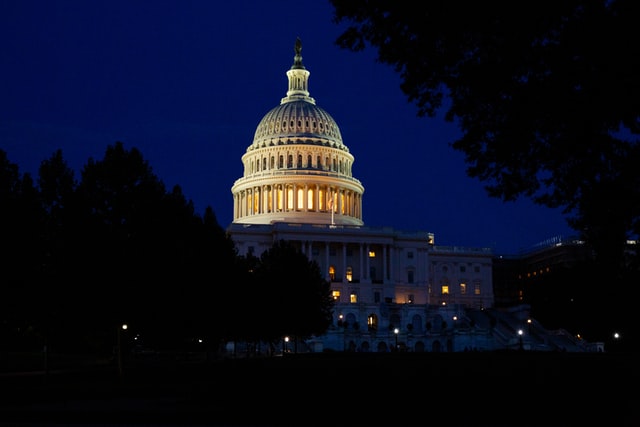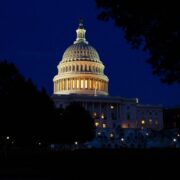
FOLLOWING months of inaction, the United States Congress on late Monday, Dec. 22, passed the long-awaited stimulus package that includes $600 in direct payments to millions of American taxpayers as well as a flurry of other funding measures that are unrelated to the COVID-19 economic crisis.
The 5,593-page spending bill’s eleventh hour passing this week arrived after months of partisan arguments and speculation over whether or not ranking members of Congress would compromise on a bill that could provide aid to individuals and businesses grappling with the financial burden of the ongoing pandemic.
The $900 billion stimulus bill is roughly half the size of the $2.2 trillion Coronavirus Aid, Relief and Economic Security (CARES) Act passed in March that provided, among other things, an unprecedented $1,200 in direct payments to millions of taxpayers.
The four Congressional leaders at the helm of the bill — Reps. Nancy Pelosi (D-CA) and Kevin McCarthy (R-CA) and Sens. Mitch McConnell (R-KY) and Chuck Schumer (D-NY) — have spent months in partisan gridlock negotiating a deal as wages and employment plummeted during the pandemic.
The bill passed with overwhelming majorities in both chambers of Congress: 359 to 53 in the House and 92-6 in the Senate.
“Today, we have reached agreement with Republicans and the White House on an emergency coronavirus relief and omnibus package that delivers urgently needed funds to save the lives and livelihoods of the American people as the virus accelerates,” Pelosi and Schumer said in a joint statement. “We are going to crush the virus and put money in the pockets of the American people.”
The $600 payments to individuals are expected to arrive via mail or direct deposit next week, and eligibility is contingent upon yearly income: individuals who earn up to $75,000 a year and married couples who earn up to $150,000 with an additional $600 per dependent under 18 years old living in the same household. The bill also extends unemployment with an additional $300 a week.
The bill also includes: $284 billion for the Paycheck Protection Program for small businesses as well as $69 billion for vaccine distribution and $82 billion for schools, McConnell said on the Senate floor on Sunday.
Pelosi and Schumer added that $25 billion will be allocated to rental assistance and eviction moratoria, $13 billion in food assistance and $7 billion to increase internet access as schools across the country continue to operate through distance learning.
President Donald Trump is expected to sign the bill in the next few days, but because annual government funding was set to expire on Tuesday, Dec. 22 at midnight, lawmakers tacked on a separate measure to avoid a week-long government shutdown.
Public backlash over the bill immediately followed the bill’s passing, largely over the decision to give taxpayers half of what they received earlier this year through the CARES Act.
And, although the stimulus checks and immediate financial aid remain a priority to Americans, tucked away in the lengthy bill are other stipulations and questionable financial allocations that stray far from the bill that was designed to assist struggling individuals.
More than $110 billion will be set aside toward tax breaks for niche industries like liquor producers, the motorsports entertainment industry and electric motorcycle manufacturers, according to the bill’s text.
Among the more controversial components of the bill include $500 billion is allocated to Israel’s defense programs, an increase from 50% to 100% deductibility of business meals, funding for two new Smithsonian museums and the creation of a new U.S. consulate office in Tibet (the bill also includes providing support to the Tibetan Buddhist faith community for the future “reincarnation” of “any future Dalai Lamas”).
These elements — which stirred criticism among tax experts, policy experts and every day Americans alike — are a part of one of the largest government spending bills in American history. The corporate tax breaks — like the one granted to producers of beer, wine and spirits — continue to reflect the influence corporate lobbyists have on major federal policy, economy experts fear.
“They are a gravy train for members and lobbyists, who repeat the same exercise every year or two,” Howard Gleckman, tax policy expert at the Urban Institute, told the Washington Post. “The lobbyists get to keep billing hours. The members get campaign money from the same people. Many of these are classic special interest tax breaks that do not benefit the overall economy in any way.”







